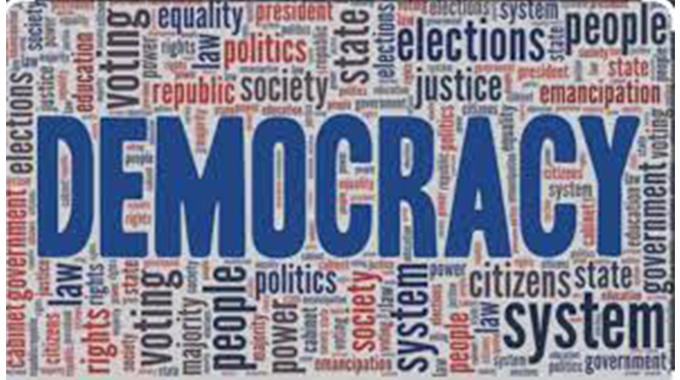Understanding democracy, democratisation and elections in the African context

Jonathan Kabanga and Francine Makabu
The definition of democracy, the most favourable and expected form of governance system by many states across the world in modern times, is still a matter of debate among several countries.
Different countries have their own forms of democracy and in most countries, once having engaged in presidential elections, they automatically classify themselves as being democratic states using diverse justifications.
Democracy, democratisation and elections are different words with different meanings, but work hand-in-hand in demonstrating the required transitional steps by countries toward becoming fully recognised democratic states characterised by all required aspects and having gone through democratisation processes that lead to organising and achieving peaceful, credible and fair elections.
The achievement of a democratic governance system does not come out of the blue, it requires multifaceted efforts and processes by the government and the people.
Transitioning from a different form of government, be it authoritarian or totalitarian, cannot become fully democratic without going through the process of democratisation which in some instances appears to be a long term process and without having organised and achieved peaceful, credible and fair elections.
While democracy simply means “rule by the people”, its successful achievement in developing third world countries sometimes becomes questionable. Is it the majority of the population making their choices, is it people’s representatives voting in parliament or it is just a certain group or number of people claiming to stand on behalf of everyone else in the country? In modern times, the achievement of the rule of the people is also associated with several other political, economic and social-cultural factors that need to be taken into consideration before coming up with a conclusion as to whether a state is completely democratic or is still under the democratisation process.
One of the most crucial factors coming into play is effective education systems. While Africa is still fighting to decolonise minds and do away with the Western imposed and unproductive educational curriculum that keeps Africans dependent, the majority of African citizens are not in a position to further their education at tertiary level due to financial challenges. A significant number of people end at either secondary or high school and some at primary level; despite the fact that these curriculums at secondary and advanced level do not give learners the necessary knowledge to benefit them in every aspect of their lives.
Some people in Africa remain illiterate and do not understand concepts such as democracy yet these are the people that are considered to be registered voters and go through the voting process to choose their political leaders through national elections.
Developing African countries should not divert their attention toward the term democratisation as this is the stage that most developing countries are found today in the road to becoming democratic states. It should be made known that democracy is a game for intellectually mature people. In other words, not everyone who participates in the voting process in developing countries determines the complete effectiveness, credibility and transparency of presidential elections.
The People’s Republic of China under the Communist Party of China (CPC) came up with what they refer to as the Chinese democracy, where not everyone is a voter but a certain number of people in the politburo have the right to analyse and assess everyone claiming to be a political candidate in a presidential election.
Former South African president Thabo Mbeki, came up with one of the most prominent concepts to understand and relate in contemporary times – the concept of “African solutions to African problems”.
Therefore, unlike history, religion and culture in Africa, the meaning of democracy should not be intertwined to meet the need of the current international governmental prerequisite.
African citizens and governments should take into consideration all the political, economic and socio-cultural factors that define a fully recognised democratic state and be informed and made aware of all interconnected processes a country should go through in the transitional period.
Most importantly, there is huge need for the term “democratisation” to be made known and popularised by everyone as we cannot deny the fact that a significant number of African countries are undergoing the democratisation process.
λ Jonathan Kabanga and Francine Makabu are international relations students at Africa University.








Comments